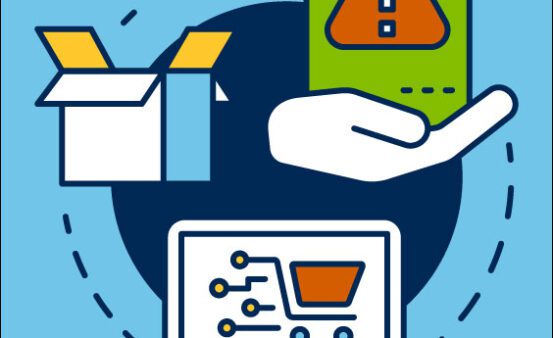International Fraud Awareness Week 2022

Learn how to protect your financial future during International Fraud Awareness Week.
Financial fraud has surged in 2022 – proving that scammers are more motivated than ever to try and trick people out of their money. Many financial scams aim to exploit consumer trust, pressure victims to act immediately by preying on fears or manipulating their hopes. Knowing about these financial traps can help you steer clear of potential scams and keep your financial ducks in a row. In this article, we will look at some common financial scams to avoid and how you can protect yourself and your financial future.
7 Types of fraud to watch out for.
- Impersonation – Scammers are finding new ways to steal money by pretending to be someone they are not. They may pretend to be a grandchild in an emergency, a computer technician who has detected problems with your computer or web browser, or even justice, tax, or other government officials asking for payment of fines or fees. In each of these cases, they demand that you send money as quickly as possible. In most cases, the scammer will tell you to wire money immediately and claim it is for a good reason – but in fact – they are planning to take your cash and leave you with nothing!
- Product or Services – Scammers advertise products or services at a great price, but when you provide your financial details – they steal your identity and financial information. They may even go so far as trying to use your financial information to purchase items on websites like eBay & Craigslist! Remember that scammers can appear trustworthy by using professional-looking emails or websites.
- Romance – All too often, people fall into financial traps when they start a relationship with someone who appears to be their perfect match. Scammers often work together, pretending to fall in love online before convincing you to send money for plane tickets, visa costs, or emergencies. They may even claim to work for the U.S. government and are trying to help move your newfound love abroad.
- Investment – This type of financial fraud is simply too good to be true! The scammers promise high rates of return on investments that don’t exist or other financial benefits without asking you for any money first – then they disappear with your cash! Be wary if you are asked to keep your investment plans secret because others will try to steal the deal from you.
- Lottery/Sweepstakes – Scammers love to play on your dreams of what you could win – if only you send money for taxes, customs fees, or other financial up-front costs required before receiving your financial reward or prize. But in fact, there is no financial reward, and you have been tricked into sending cash to a scammer!
- Phishing – Scammers posing as a legitimate organization or a trusted source (e.g., your bank) will contact you through email or text messages asking you to verify personal information such as username, password, social security number, personal information, etc. This can also include clicking on a link that takes you to a site where the scammers ask for private information. Make sure that emails requesting sensitive, personal information and claiming to be legitimate are verified independently. Don’t click on any links. Instead, look up the company website using your internet browser and visit the website directly, and confirm the contact details found on the website.
- Elder Financial Exploitation (EFE) – Occurs when a person or entity intentionally takes or misuses funds, assets, or property with the intent to wrongfully use or defraud a vulnerable adult or senior for the fraudster’s personal benefit. EFE is the most common form of elder abuse, and only a tiny fraction of incidents get reported resulting in an estimated 1 in 6 people over 60 experiencing some form of exploitation. The elderly can experience financial exploitation from caregivers, family members, scam artists/strangers, home service providers, or fiduciaries.
15 ways you can protect yourself from scams.
-
- Set up email and text alerts on your Clearwater account in online banking.
- Download and use the Clearwater CardNav App.
- Stay opted into Clearwater Fraud Text Alerts.
- Review your accounts regularly using Clearwater’s mobile app or online banking.
- Properly dispose of documents related to your accounts. Clearwater members can stop by any Clearwater branch to have documents shredded.
- Change your account passwords, avoid using the same password for multiple accounts, and make your passwords strong.
- When shopping online, make sure you are using a secure internet connection and avoid using public Wi-Fi.
- Confirm all communication related to your finances or accounts. Visit the company website directly to contact them with a verified email or phone number.
- Be careful about assuming caller ID is accurate. Scammers can spoof phone numbers. You can also add your phone number to the National Do Not Call Registry.
- Avoid giving personal information over the phone. Always very the company or person contacting is legitimate.
- Check your credit reports and monitor them regularly using tools like com.
- Don’t download files or click on links in unsolicited texts, emails, or social media messages.
- Avoid situations where you are asked to forward money or packages to people you do not personally know.
- Report scams to the Federal Trade Commission.
- If it sounds too good to be true…it probably is.


